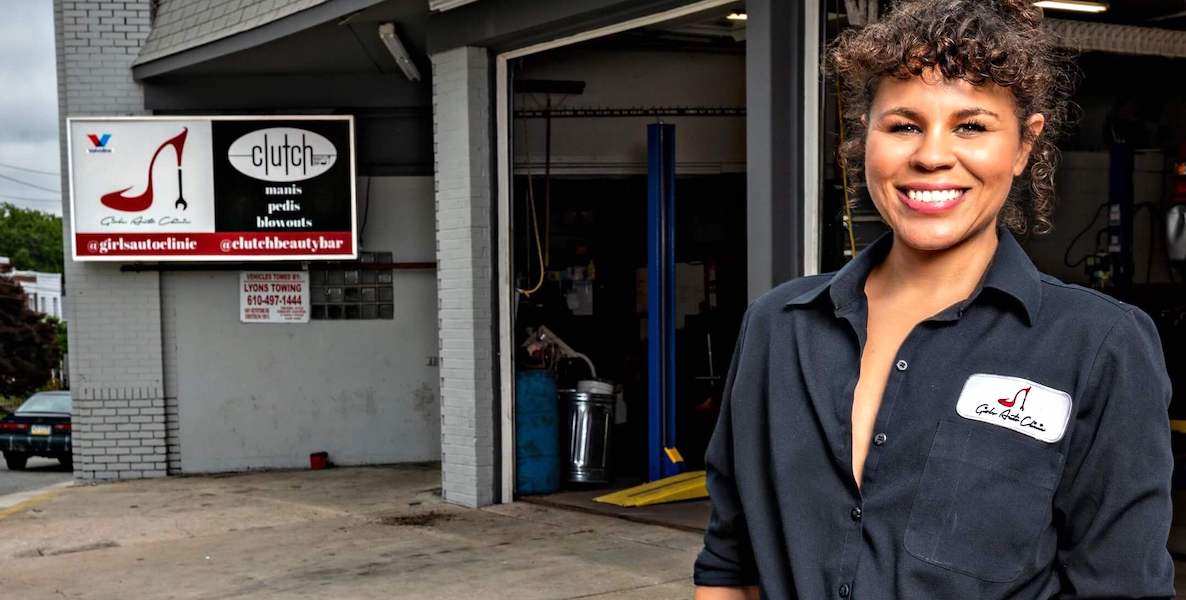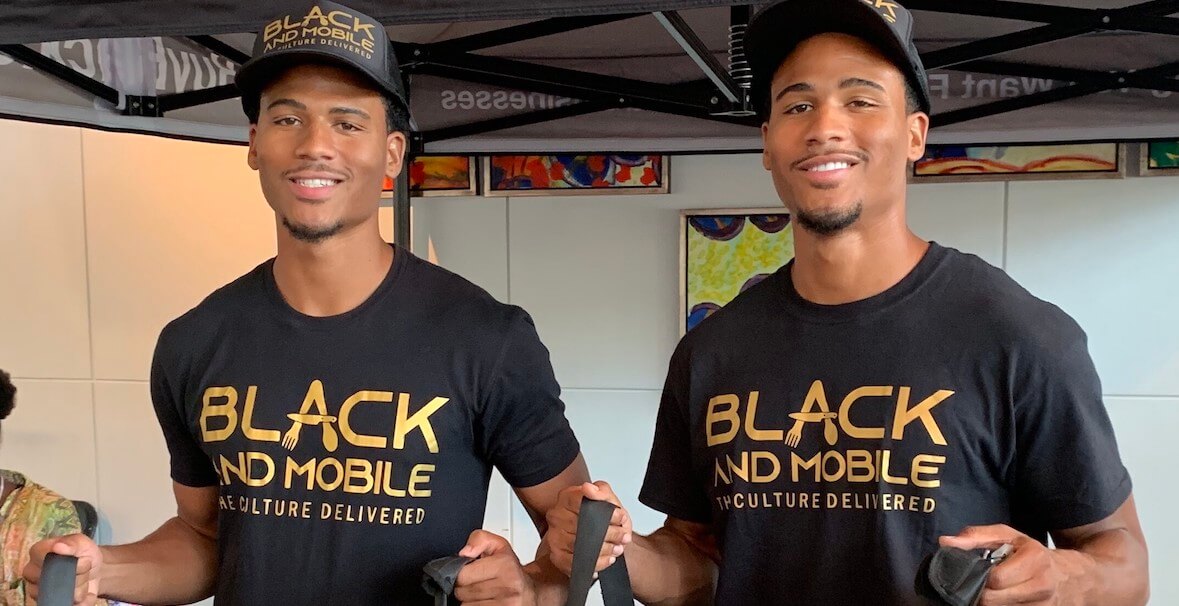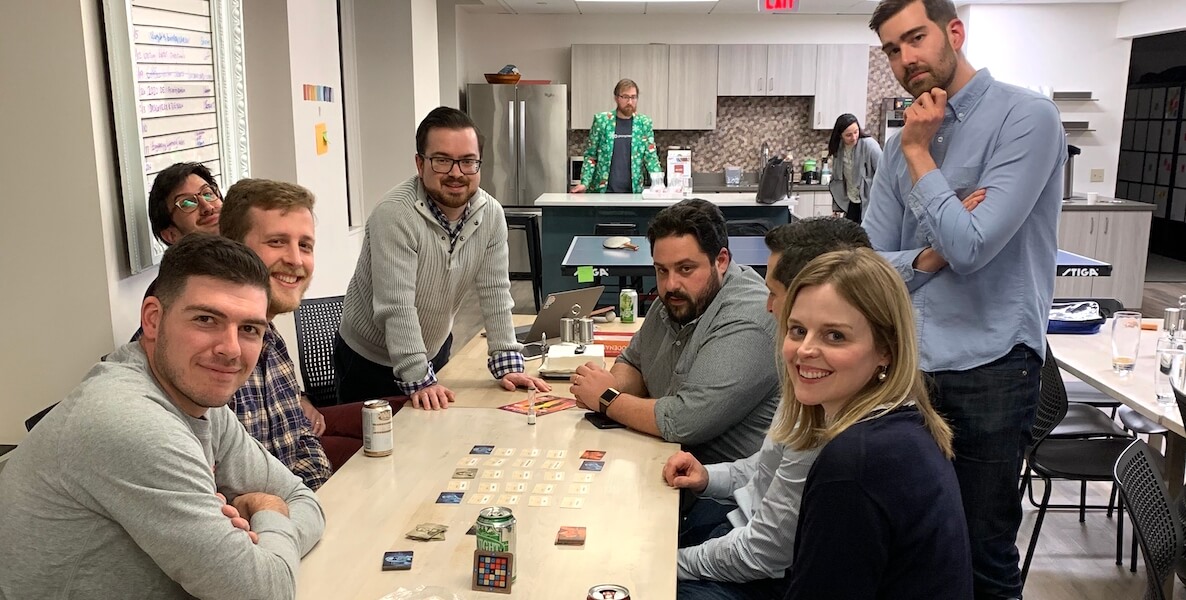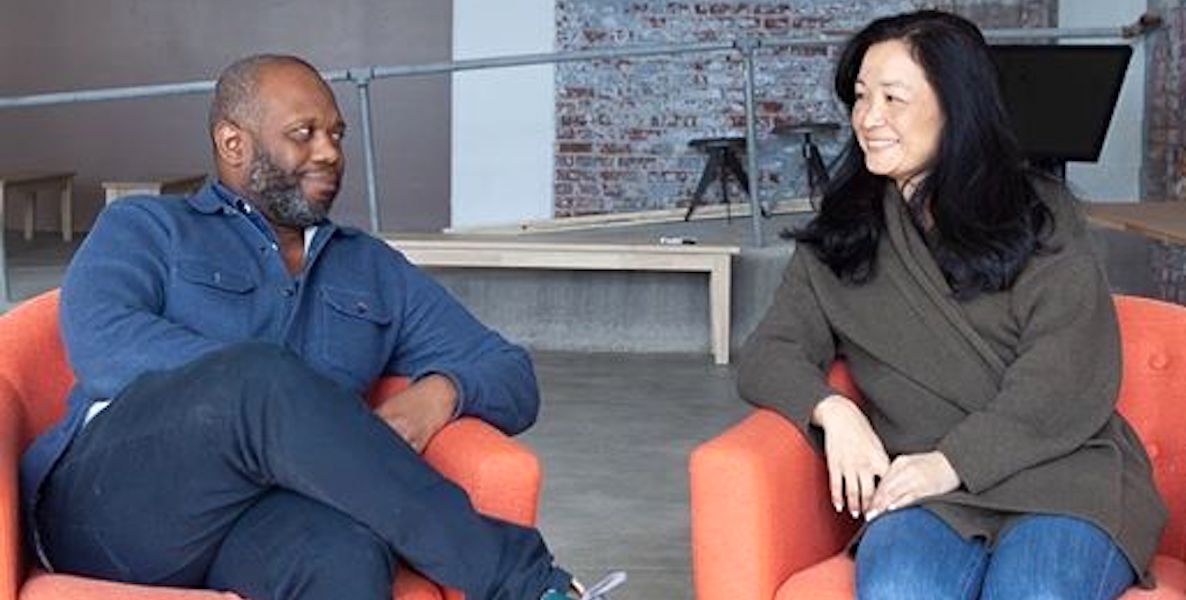Nicole Phoenix was feeling burnt out.
It was 2018, and she’d spent the previous few years dedicating herself to a nonprofit that served youth, as a program coordinator. She loved the work, but the intensity of it was all-consuming.
So it may sound surprising that Phoenix’s next professional move wasn’t to a more relaxed sector but to…tech?
Then again, the company she jumped to wasn’t your stereotypical tech-bro factory: It was Promptworks, a Philadelphia- and New York City-based software engineering and development firm that prioritizes volunteering, giving employees time for personal and professional development, and diversifying the tech community.
In 2020, Promptworks employees have dedicated 250 hours to philanthropic endeavors, and have committed another 500 hours to supporting Black entrepreneurs through Indy Hall’s 2021 project; employees will work with Indy Hall and Rec Philly to help with résumé reviews, marketing support and tech/engineering consulting.
“I was really excited when I started working at Promptworks to see that there was still this opportunity to give back,” Phoenix says.
Promptworks’ civic-minded approach has hardly inhibited the company’s rapid growth. The company’s founders say it has helped them retain happier, more productive employees and that their investment in Philly’s tech scene has helped them build a talent pipeline that will serve both the company and the city well into the future.
Building for the future
Promptworks was founded in 2013 when software engineers Jason Garber, Greg Sterndale and Mike Nicholaides set out to create the tech company they wanted to work for. They’d all put in their time in the traditional tech space. Garber worked as a freelance consultant and had founded a computer company at age 14. Sterndale was a long-time startup veteran. Nicholaides was a web developer who dabbled in startups.
![]() In those positions, they experienced both the satisfaction of working with companies to build software solutions that last, and the frustration that comes with products that had been rushed through development. In 2018, the Consortium for IT Software Quality (CISQ) estimated that poor quality software cost U.S. organizations $1.43 trillion. Other organizations estimate that number is closer to $2.8 trillion.
In those positions, they experienced both the satisfaction of working with companies to build software solutions that last, and the frustration that comes with products that had been rushed through development. In 2018, the Consortium for IT Software Quality (CISQ) estimated that poor quality software cost U.S. organizations $1.43 trillion. Other organizations estimate that number is closer to $2.8 trillion.
Part of the reason poor quality software products make it out of the gate is time constraints. As innovations and iterations come to market faster and faster, the speed at which tech companies work invariably leads to errors—CSIQ notes that, on average, developers make 100 to 150 errors per 1,000 lines of code.
In 2020 alone, Promptworks employees have dedicated 250 hours to philanthropic endeavors, and donated another 500 hours to supporting Black entrepreneurs.
Rushing to develop products isn’t the only practice that leads to breakdowns in software, though. Gaps in team communication, poorly trained developers and insufficient technology knowledge all contribute, as well. And these problems can be exacerbated by the 24-7 work culture associated with tech companies, which has been criticized for promoting long-hours, providing little opportunity for professional growth, and reduced productivity and worker unhappiness.
When they founded Promptworks, Garber, Sterndale and Nicholaides wanted to help companies create software solutions that are built to last, and support their team to last too.
“Promptworks’ primary asset is its amazing people,” says Sterndale. “They work hard for us and our clients. Stoking creativity, offering learning opportunities, and supporting our community is the least we can do for them. It not only brings deeper job satisfaction, but it makes for immeasurably better work.”
They’ve created a company culture that invests in, rather than overworks, employees and one that prioritizes philanthropy, volunteerism and diversifying Philly’s tech pipeline.
Promptworks encourages all employees to dedicate 25 percent of their time to professional growth projects, including creating open source tech tools, leading local tech meetup groups or dedicating time each week to projects that will either help them grow as individuals or help the company as a whole.
The company has worked with local organizations like Philly Tech Sistas, Software as a Craft, and PhillyPUG to host a series of meetups, which Phoenix, who works on external philanthropic projects and internal company culture and diversity, equity and inclusion efforts (DEI), is in charge of organizing. The series is a mix of networking, professional growth, and philanthropic opportunities. In September, Phoenix was nominated for a Technical.ly Culture Builder of the Year Award in recognition of these efforts.
In addition to providing educational opportunities for Promptworks employees, the meetups are a place for others in the tech industry to connect with resources they may need, or volunteer to share their skills. (In light of Covid-19, the series has moved online.)
In April, engineers at the company used some of their professional development time to build YourNeighborGood, a mutual-aid platform that allows people in Philly to volunteer to help neighbors who may be at high-risk of contracting the virus by running errands for them—prescription pickups, grocery store runs and so on.
![]() YourNeighborGood also includes resources for people in need of free food, and a list of causes to which people can donate to support small businesses, artists, and others who may be experiencing financial difficulty or food insecurity due to the pandemic. The ability to pivot quickly and address areas of greatest need is something that has become integral to Promptworks’ volunteer efforts during the pandemic; from inception to rollout, YourNeighborGood only took two weeks.
YourNeighborGood also includes resources for people in need of free food, and a list of causes to which people can donate to support small businesses, artists, and others who may be experiencing financial difficulty or food insecurity due to the pandemic. The ability to pivot quickly and address areas of greatest need is something that has become integral to Promptworks’ volunteer efforts during the pandemic; from inception to rollout, YourNeighborGood only took two weeks.
“Personal and professional growth and giving back to the community is gratifying, so yes, people are happier. They are also happier when they can devote some of their time to learning better ways to help clients, whether that’s through newer technology, or increased technical and non-technical skills,” Nicholaides says.
Research has shown that companies with comprehensive training programs and professional development support have a 24-percent higher profit margin than those that focus less on training. Promptworks is no exception: The company has experienced seven years of rapid growth and was recently added to the Inc. 5000 list of fastest growing companies.
Going beyond words
The founders believe that their focus on employee development and community engagement helps them attract clients-—the firm has developed solutions for Comcast, Twitter, Sony, honeygrow—and, more importantly, helps them find clients that are invested in developing long-term solutions to problems both in and out of the tech world.
A major part of Phoenix’s job is connecting the company with Philly’s tech community through volunteer and philanthropic efforts that focus on education and diversifying the tech pipeline. The company sets aside a budget that varies from year to year and allows them to support nonprofits financially, as well as with donated time. This year, the company donated nearly $10,000 to various Philadelphia charitable organizations.
When they founded Promptworks, Garber, Sterndale and Nicholaides wanted to help companies create software solutions that are built to last, and support their team to last too.
During pre-Covid times, Promptworks donated coding and consulting hours to Coded by Kids, a group that tries to decrease racial, gender and economic inequities in the tech industry by providing educational opportunities to people from under-represented groups, and Hopeworks in Camden, a nonprofit that helps people develop the skills they need to secure jobs in web design and development.
This summer, as Black Lives Matter protesters took to the streets to protest the police murder of George Floyd, Phoenix organized a company matching program for employees who donated to Philly’s bail funds. The company matched $4,000 in donations in a matter of hours.
Jessica McManus, a talent acquisition specialist at Promptworks, came to the company just as the pandemic hit Philly in March, and has since worked with Phoenix on initiatives like “Ingenious Ideas.”
![]() Held in July, the event brought together 80 leaders from across food, tech, education, arts and health care companies in Philly for a day dedicated to developing concrete plans to make the city more equitable. Attendees were divided into discussion groups related to diversity, equity and inclusion (DEI); improving minority access to capital; and creating equitable mentorship opportunities.
Held in July, the event brought together 80 leaders from across food, tech, education, arts and health care companies in Philly for a day dedicated to developing concrete plans to make the city more equitable. Attendees were divided into discussion groups related to diversity, equity and inclusion (DEI); improving minority access to capital; and creating equitable mentorship opportunities.
The event asked attendees to make commitments to actions they could take to address these issues, either within their companies or the city as a whole. Members of “the DEI group” committed to volunteering at least four hours of their time to organizations committed to diversifying the tech pipeline.
The “improving minority access to capital group” is reaching out to two to three venture capital firms to create a shareable, resource information sheet, and they’re planning to hold a socially distanced fundraiser for Black entrepreneurs. The “equitable mentorship group” put together a resource sheet that members of underrepresented groups can use to find mentorship resources within the city and volunteer their time as mentors themselves.
Promptworks also made several commitments during the event, including donating that $10,000 sum to various local charitable organizations.
“We didn’t want to have one conversation that made everyone feel really warm and fuzzy and feel good about the fact that we were talking about some hard issues, and then go home and then kind of never talk about it again, which is what I’ve experienced at some events like that,” Phoenix says.
Looking ahead …
This month, the firm was planning to hold an Oktoberfeast event focused on raising funds for living wage grants for Black entrepreneurs; in light of the city’s rise in Covid-19 cases, they’re holding off for now, but stay tuned to their social media for updates. It’s work that builds off of Promptworks’ internal efforts to diversify their talent pipeline and make their company and the tech industry more equitable. Only 5.8 percent of software developers in the U.S. are Black and only 5.1 percent are Latino, according to a Bureau of Labor Statistics report from 2019.
As a firm founded by three white men, Promptworks recognizes that they can’t have all the answers to the tech industry’s problems.
For some of America’s tech giants, the statistics are event more grim. At Google, 2.1 percent of employees in technical roles are Black. At Facebook, the number is only 1.5 percent.
Recognizing that people can come to tech from many different, non-traditional backgrounds is one of the keys to diversifying the tech pipeline and it’s one of the reasons that Promptworks often recruits talent from outside the tech space.
Phoenix and McManus both came to the company after working at nonprofits, and the company has hired people from a variety of backgrounds; one of the company’s founders, Sterndale, came to software engineering after earning a film degree at Emerson.
Their work with educational groups, like Hopeworks and Coded By Kids, and meetup groups, like Philly Tech Sistas, that are dedicated to creating more opportunities for underrepresented groups in tech, also helps them diversify current and future tech talent pipelines.
“It’s no secret that the tech space is not very diverse and that problem isn’t simple. It isn’t just a matter of hiring more diverse folks,” McManus says. “It starts from a skills gap. So, part of the philanthropy and part of some of the work Nicole does is based on, how do we bridge that skills gap from the beginning?”
As a firm founded by three white men, Promptworks recognizes that they can’t have all the answers to the tech industry’s problems. Instead, conversations need to happen across the tech community and the city as a whole.
Says Nicholaides: “Being a good citizen and steward of the community we’re in improves our community, and the better our community is doing, the better we’ll do, too.”
Header photo courtesy Promptworks












